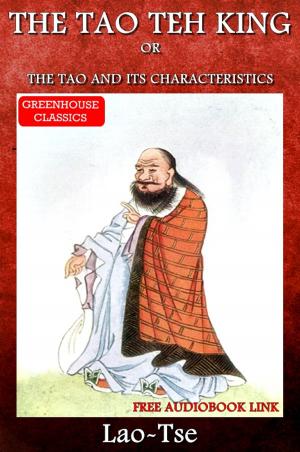A Tale Of Two Cities (Complete&Illustrated)(Free Audio Book Link)
With Forty Illustrations
Fiction & Literature, Literary Theory & Criticism, French, European, Classics| Author: | Charles Dickens | ISBN: | 1230000096893 |
| Publisher: | Greenhouse Classics | Publication: | January 1, 2013 |
| Imprint: | Language: | English |
| Author: | Charles Dickens |
| ISBN: | 1230000096893 |
| Publisher: | Greenhouse Classics |
| Publication: | January 1, 2013 |
| Imprint: | |
| Language: | English |
As an example of Dickens 's literary work, A Tale of Two Cities is not wrongly named. It is his most typical contact with the civil ideals of Europe. All his other tales have been tales of one city. He was in spirit a Cockney; though that title has been quite unreasonably twisted to mean a cad. By the old sound and proverbial test a Cockney was a man born within the sound of Bow bells.
That is, he was a man born within the immediate appeal of high civilization and of eternal religion. Shakespeare, in the heart of his fantastic forest, turns with a splendid suddenness to the Cockney ideal as being the true one after all. For a jest, for a reaction, for an idle summer love or still idler summer hatred, it is well to wander away into the bewildering forest of Arden. It is well that those who are sick with love or sick with the absence of love, those who weary of the folly of courts or weary yet more of their wisdom, it is natural that these should trail away into the twinkling twilight of the woods. Yet it is here that Shakespeare makes one of his most arresting and startling assertions of the truth.
Here is one of those rare ana tremendous moments of which one may say that there is a stage direction, 'Enter Shakespeare.' He has admitted that for men weary of courts, for men sick of cities, the wood is the wisest place, and he has praised it with his purest lyric ecstasy. But when a man enters suddenly upon that celestial picnic, a man who is not sick of cities, but sick of hunger, a man who is not weary of courts, but weary of walking, then Shakespeare lets through his own voice with a shattering sincerity and crys the praise of practical human civilization:
If ever you have looked on better days.
If ever you have sat at good men's feasts,
If ever been where bells have knolled to church.
If ever from your eyelids wiped a tear
Or know what 'tis to pity and be pitied.
As an example of Dickens 's literary work, A Tale of Two Cities is not wrongly named. It is his most typical contact with the civil ideals of Europe. All his other tales have been tales of one city. He was in spirit a Cockney; though that title has been quite unreasonably twisted to mean a cad. By the old sound and proverbial test a Cockney was a man born within the sound of Bow bells.
That is, he was a man born within the immediate appeal of high civilization and of eternal religion. Shakespeare, in the heart of his fantastic forest, turns with a splendid suddenness to the Cockney ideal as being the true one after all. For a jest, for a reaction, for an idle summer love or still idler summer hatred, it is well to wander away into the bewildering forest of Arden. It is well that those who are sick with love or sick with the absence of love, those who weary of the folly of courts or weary yet more of their wisdom, it is natural that these should trail away into the twinkling twilight of the woods. Yet it is here that Shakespeare makes one of his most arresting and startling assertions of the truth.
Here is one of those rare ana tremendous moments of which one may say that there is a stage direction, 'Enter Shakespeare.' He has admitted that for men weary of courts, for men sick of cities, the wood is the wisest place, and he has praised it with his purest lyric ecstasy. But when a man enters suddenly upon that celestial picnic, a man who is not sick of cities, but sick of hunger, a man who is not weary of courts, but weary of walking, then Shakespeare lets through his own voice with a shattering sincerity and crys the praise of practical human civilization:
If ever you have looked on better days.
If ever you have sat at good men's feasts,
If ever been where bells have knolled to church.
If ever from your eyelids wiped a tear
Or know what 'tis to pity and be pitied.















